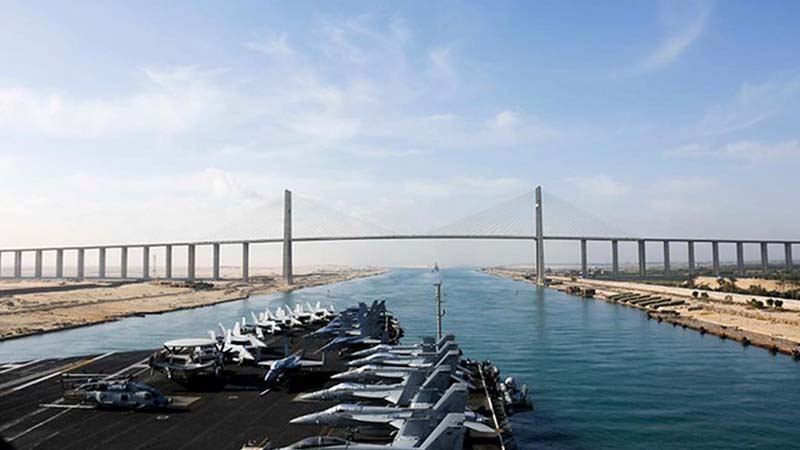Are we really going to war with Iran?

War with the Iranian regime has seemed a real possibility many times in the past four decades, but never happened. So are the threats this time real or idle?
For insights into the current situation, we need to study Tehran’s past behavior and its refusal to enter into a single war despite its confrontational stance.
In the past four decades, we have seen in Tehran a sinister rationalism that pushes things to the brink of the abyss but never takes the leap. The situation today is quite different. The US administration is the one pushing Iran to the brink, and the revolutionary theocratic regime is now facing its most dangerous situation since coming to power in the 1970s.
Popular protests inside the country are growing, and with the ban on Iranian oil and other exports, Tehran’s options are narrowing.
Iran can stubbornly maintain its stance in the hope that either Washington shifts its position or there is a change in the US presidency, but this would require Tehran to wait 18 months and risk having its regime collapse from within.
Another option would be for Iran to negotiate and compromise, which is against its principles, and would dent its pride and hinder its expansionist military nuclear project.
A third option would be to seek out a military conflict that it believes it will win and force the US to compromise.
Iran has mastered risk-taking and never suffered the consequences. Tehran has risked war many times, with the attack by its followers against a US Marines headquarters in Beirut in 1983, and the kidnapping and assassination of a number of Western and Arab figures by its agent Hezbollah in the 1980s.
Iran’s defiance has only increased with
plans for attacks inside the US against its
opposition as well as an assassination plot
against the then Saudi ambassador to
Washington, Adel Al-Jubeir. This, in
addition to the wars it waged— or was
behind — in Syria, Lebanon, the
Gulf states and Yemen
The Iran-Iraq war that began in 1981 and lasted eight years had dangerous complications, such as Iran’s attack on Kuwaiti oil tankers, its attempt to attack Saudi Arabia in 1984 with four Phantom jets — two of which were brought down by the Saudi air force — and the downing of an Iranian passenger aircraft over the Arabian Gulf in 1988 by a US missile.
Iran was also linked to a 1996 attack on the Marines headquarters in Alkhobar, Saudi Arabia; dared to host Al-Qaeda leaders on its territory after the 9/11 terror attacks; and then became involved in attacks on US troops in Iraq through its support for what was then called the “Iraqi resistance.”
Moreover, Iran defied repeated US threats of bombing over issues surrounding its nuclear reactors and uranium enrichment for military purposes. Tehran was also shown to have links to global terrorism, and had a hand in bombings in Africa and Latin America, including the 1994 bombing of a synagogue in Buenos Aires.
Iran’s defiance has only increased with plans for attacks inside the US against its opposition as well as an assassination plot against the then Saudi ambassador to Washington, Adel Al-Jubeir. This, in addition to the wars it waged — or was behind — in Syria, Lebanon, the Gulf states and Yemen.
All of these are serious circumstances that could have resulted in military confrontation, leaving Iran in conflict with the world. But Tehran never attempted to enter into direct confrontation with the US, while the US also avoided war. Instead, Tehran has confined itself to using its agents, such as Hezbollah, several militias in Iraq and the Houthis in Yemen, to carry out combat missions.
All of this suggests that Iran’s policy is clear: it is to avoid a military clash with US forces in the region. Nevertheless, Iran believes it has vital interests and may sometimes have to go to war to defend them, as it did in 1991 to expel Saddam Hussein from Kuwait and, in 2003, when it invaded Iraq.
This time round, war is more likely to erupt.
Abdulrahman Al-Rashed is a veteran columnist from
Al Arabia News




